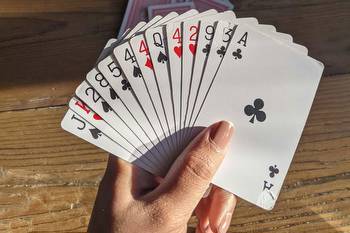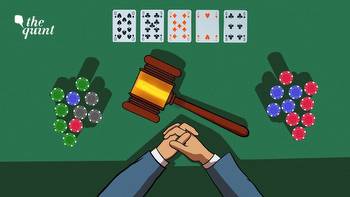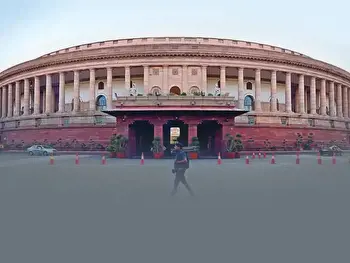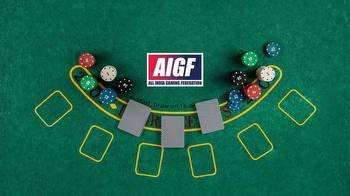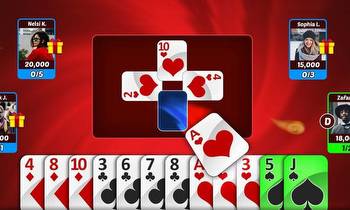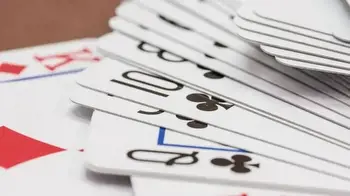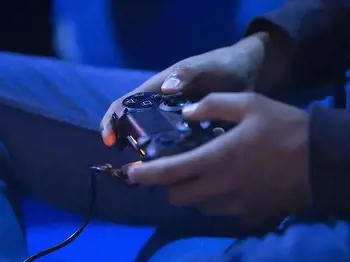Why India’s online gaming industry desperately needs a regulatory architecture

Opinion
Online gaming is often mixed up with gambling. There is a need to distinguish games of chance and games of skill and e-sports
India is one of world’s biggest markets for online gaming. There are nearly 433 million online gaming app users and they are growing rapidly. Almost half of them are in the 15-64 age group. During the pandemic, the usage of these apps soared by 65 per cent. According to Sensor Tower Research, India had the world’s highest number of game downloads at 761 million. The tremendous surge in India is driven by the growing youth population, explosion in volumes of mobiles and tablets, inexpensive data and new gaming genres offering novel thrills.

HYDERABAD, 20/07/2011: A view of the new range of high-end mobile phone game after it was unveiled on July 20, 2011 at a news conference in Hyderabad. The phone game is developed by Hyderabad-based 7-seas Entertainment Limited, India's only independent IP-based games development company which focusses on developing PC Games, Mobile Games, Console Games and Online Games. Mobile gaming is the fastest growing segment for game and with more smart phones flooding the market of 800 million mobile subscribers and expecting to reap-up Rs.17.1 billion in revenues by 2015 in the country.Photo: Mohammed Yousuf| Photo Credit: MOHAMMED YOUSUF
In the Budget 2022, the Finance Minister announced setting up a task force to promote animation, visual effects, gaming, and comics sector (AVGC). Currently India has 10 per cent of the global AVGC market and is expected to reach 25 per cent by 2027. With India’s leadership in AVGC, 3D designs, AI, VR/AR, block chain technology, cloud technology, etc. it is expected to catapult the country among the world’s top three.
According to a KPMG report, the Indian online gaming industry was worth Rs 13,600 crore in FY 2020-21 and likely to reach Rs 29,000 crore by FY 2025. According to another BCG-Sequoia report it is expected to soar to $5 billion by 2025. Microsoft’s acquisition of the video game company Activision Blizzard for a whopping $69 billion reaffirms the sector’s huge potential and brings with it the prospect of a big bazar for Indian developers.

Mobile games, vector flat style design illustration. Hands holding smartphone with space video game user interface design and game controller. Mobile gaming app concept.| Photo Credit: SiberianArt
Online gaming is often mixed up with gambling. There is a need to distinguish games of chance and games of skill and e-sports. E-sports, short for electronic sports is a form of competition using video games, for which there are organised multi-layer video games and International Esports Federation. The original Public Gambling Act 1867 expressly prohibited owning or running gaming house or even participation. However, games purely based on skill were not barred.
Several judicial pronouncements have upheld validity of games of skill. The Supreme Court in RMD Chamarbaugwala & Anr v Union of India (1957 AIR 628, 1957 SCR 930), held that offering games of skill is a protected activity under Article 19 (1) (g) Constitution i.e. freedom to practice any profession, or to carry on any occupation, trade or business. However, States have the power to legislate on ‘betting and gambling’, accordingly, there is diversity across States. While many NE States and Goa have taken a liberal approach, Telangana, Andhra Pradesh, Kerala and Karnataka, sought to restrict even games of skills, though High Courts of Karnataka, Tamil Nadu and Kerala, have struck down such amendments to legislations banning online skill gaming.
In D Siluvai Venance vs Inspector of Police, the Madras High Court stressed on a regulatory framework for online gaming. In Dr. K.R. Lakshman v State of Tamil Nadu it was held that where: (a) test of predominance of skill is applied as set out in to validate the nature of the game; (b) where skill was the predominant factor the activity, would be protected by Article 19(1)(g) of the Constitution as a permitted business activity. In Avinash Mehrotra v State of Rajasthan, the Supreme Court held in July 2021 that Dream11 is a game of skill. In Junglee Games India Private Limited v State of Tamil Nadu, the High Court held that the blanket ban online gaming, both skill and non-skill based under the Tamil Nadu Gaming Act 2021 was ultra vires the Constitution. Sometime ago, Karnataka High Court ( https://bit.ly/366p3Nz) struck down state law banning online gaming, ‘terming it as unconstitutional’.
The biggest problem is that the industry suffers from lack of regulatory eco-system, with blurred jurisdictions between centre and states, resulting in confusion and loss of revenue to both.
There is an urgent need to properly regulate this industry, in terms of the judicial pronouncements and global practices. A private bill, The Online Gaming (Regulation) Bill of 2022 has sought to resolve the legislative inconsistency in online gaming. The Bill, recently introduced in Parliament, seeks to create a centralized quasi-judicial body to grant, suspend and revoke licenses to gaming operators. However, it is difficult to predict its outcome.
There is a view that gaming companies might adopt self-regulation and proactively educate users on how to avoid cheating and abuse. Each game may follow a well-established age-rating mechanism and minors not allowed or permitted only with consent of their parents, entry with KYC, OTP verification on Aadhaar. No in-game purchases allowed without adult consent and the in-game chat option disabled. While self-regulation is undoubtedly a good idea, to enshrine greater regulatory-acceptability it would be advisable at this stage to house regulation of online games under a nodal ministry, rather than a self-regulatory organisation, otherwise it may not instill confidence and credibility.
Online gaming and e-sport is a sunrise industry, urgently in need of a regulatory architecture, and can contribute significantly in creation of new jobs and exports, augmenting India’s quest for a $5 trillion economy.
The author is former Chairman, Competition Commission of India and Executive Director for India at World Bank











